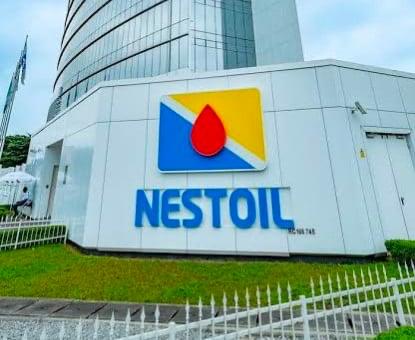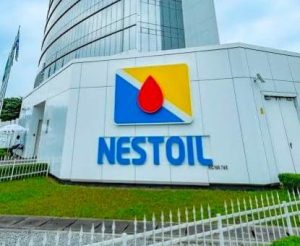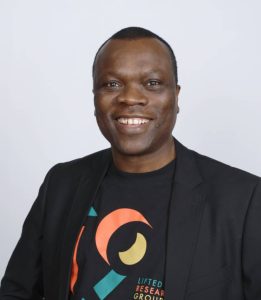Black Gold and Red Tape: The Legal Siege of Nestoil’s Assets


….. Opaque Finance or Hostile Takeover? Nestoil challenges FBNQuest’s asset freeze over unverified $1 billion claims
….. Legal experts warn Nigeria risks scaring away global investors if fiduciary transparency falters
Beneath the sun-scorched oilfields of OML 42, a drama unfolds that could redefine trust in Nigeria’s financial and judicial architecture. At the center is a $1 billion dispute, a tangled web of bank statements, ex parte orders, and contested debts, that has pitted Nestoil Limited, a leading indigenous oil company, against FBNQuest Merchant Bank and its syndicate of lenders. The stakes are colossal: beyond the balance sheets and courtroom filings, the outcome may shape how investors perceive Nigeria’s promise, its institutions, and the very future of domestic enterprise.
For months, Nestoil has sought clarity, requesting statements of account from FBNQuest and its lending partners to reconcile disputed figures exceeding $1.01 billion and N430 billion. Yet, despite repeated outreach via emails dated from February through June 2024, the company alleges that its entreaties went unanswered. The silence, Nestoil contends, was more than mere oversight, it was a breach of fiduciary responsibility at a time when transparency was not merely desirable but essential.
As the designated Facility Agent for the syndicated loan, FBNQuest is expected to act as the bridge between lenders and borrower, coordinating communication, monitoring repayment schedules, and maintaining a transparent ledger. In this case, however, Nestoil asserts, the bank sidestepped these obligations. Instead of providing statements to allow verification of debt obligations, FBNQuest moved swiftly to the courts, obtaining ex parte Mareva and receivership orders that froze Nestoil’s assets and shares. The orders, the company argues, were executed without due process, bypassing its repeated requests for information.
In its filings, Nestoil insists that the purported debt figures are “incorrect and lack any proper basis.” The company is now preparing to appoint ten local and international forensic auditors to scrutinize all its bank accounts across Nigeria—a preemptive strike aimed at uncovering the truth behind the $1 billion claim. “Only a proper forensic reconciliation would reveal whether we are indebted and the precise amount, if any,” the company stated.
Observers and insiders have raised eyebrows at the timing of FBNQuest’s court action. Neconde, the subsidiary whose operations are directly implicated, has recently experienced an uptick in production on OML 42 after years of operational setbacks. The renewed revenue streams have transformed the asset into a lucrative target. Critics argue that this context casts the bank’s legal maneuvers in a more strategic light. “This is an attempted hostile takeover of a producing oil asset,” one source familiar with the matter said, suggesting that the rush to court may mask ambitions beyond debt recovery.
Indeed, the Mareva and receivership orders have had immediate operational consequences. Neconde’s oil production, logistics, and contracts are all caught in the freeze. This disruption has drawn the attention of foreign lenders and major banks who also provided credit to Neconde; many have already filed papers challenging FBNQuest’s actions. The saga raises broader questions about the impartiality of facility agents and security trustees, particularly when such entities are affiliates of lenders in syndicated loans.
Senior bankers caution that these developments send alarming signals to international investors. In a financial landscape where trust underpins every transaction, any perception that agents can manipulate structures to seize assets risks deterring foreign capital. “If agents can become adversaries under the guise of debt enforcement, global financiers will hesitate to fund indigenous companies in syndicated arrangements with Nigerian banks,” a senior banker warned.
The legal dimensions of the dispute are equally complex. Neconde maintains that its inclusion in FBNQuest’s orders is illegal, citing its ongoing proceedings in the Federal High Court. Legal experts underscore the delicate balance courts must strike when issuing ex parte orders in strategic sectors like oil and gas. While such orders are intended to preserve assets, they may instead destroy value and imperil jobs if misapplied. “Justice should not become a tool for asset conquest,” a Lagos-based commercial lawyer said, emphasizing the potential harm of unbridled creditor power.
Financial lawyers and analysts argue that the dispute underscores vulnerabilities in Nigeria’s banking system. Facility agents and trustees, acting as intermediaries in syndicated loans, wield significant power. Yet the regulatory framework appears inadequate to ensure that this power is exercised transparently and fairly. With Nigeria striving to attract international investment in energy, infrastructure, and industrial development, such disputes risk eroding confidence.
The implications of the Nestoil-FBNQuest standoff extend beyond oil wells and courtrooms; they touch the very fabric of investor sentiment. In emerging markets, perception often carries as much weight as policy. When lenders or their agents can appear to weaponize legal structures for strategic advantage, foreign investors are bound to hesitate. “No investor wants to operate in a jurisdiction where their lending partners can become their adversary,” noted an international banker with experience in syndicated financing.
Calls for intervention have grown louder. Financial practitioners are urging the Central Bank of Nigeria (CBN) and the Securities and Exchange Commission (SEC) to strengthen oversight, ensuring that facility agents act in the interest of all parties. Meanwhile, legal experts advocate for judicial restraint in granting far-reaching ex parte orders that can freeze assets and disrupt employment. The courts, they insist, must strike a balance between creditor enforcement and economic stability.
The saga also exposes the challenges inherent in Nigeria’s judicial and financial nexus. Courts have the authority to issue protective orders, yet in high-stakes sectors such as oil, those orders may ripple across the economy, affecting contracts, employment, and revenue streams. Nestoil’s contention, that FBNQuest’s orders risked undermining economic activity rather than preserving value, highlights the unintended consequences of judicial overreach in a fragile financial ecosystem.
From a corporate governance perspective, the dispute is instructive. Nestoil’s decision to engage both local and international forensic auditors signals a commitment to transparency and accountability. It also underscores the importance of meticulous record-keeping, internal controls, and independent verification in complex financing arrangements. By insisting on a forensic reconciliation, Nestoil is not merely defending itself; it is establishing a precedent for corporate probity that could shape the conduct of Nigerian lenders and borrowers alike.
Observers note that the dispute may also reshape the role and perception of facility agents in syndicated loans. While these entities are meant to mediate and safeguard the interests of both lenders and borrowers, allegations that they can exploit information asymmetry to seize assets undermine the legitimacy of the system. Transparent communication, timely disclosure, and adherence to fiduciary duties are not optional; they are essential to sustaining confidence in domestic and international financial networks.
The human dimension of the conflict should not be overlooked. Beyond boardrooms and balance sheets, the operational freeze affects employees, contractors, and local communities dependent on OML 42. Disruption in oil production can delay salaries, stall local projects, and ripple across regional economies. Such consequences add urgency to calls for measured judicial intervention and responsible banking practices.
The Neconde-FBNQuest episode is emblematic of broader systemic challenges. It exposes the tension between creditor enforcement and economic stewardship, between rapid legal action and due process, and between profit motives and public confidence. In a sector as critical as oil, missteps resonate far beyond the courtroom, touching energy security, fiscal revenues, and investor perceptions.
For Nigeria, the stakes are clear. Without robust oversight and transparent governance, disputes like this threaten to erode hard-won investor trust. If facility agents can manipulate lending structures unchecked, and if courts can issue asset freezes without rigorous justification, indigenous companies may face an environment where financing comes at the price of vulnerability to strategic seizure.
Yet, amid the controversy, Nestoil’s insistence on clarity and reconciliation offers a glimmer of hope. By mobilizing forensic auditors and pursuing transparency, the company is signaling that accountability is not negotiable. It is a quiet but potent assertion that Nigerian businesses can—and must—assert their rights, even against powerful financial intermediaries.
As the case unfolds, all eyes will remain on the courts, the banks, and the auditors who will dissect the ledgers and unravel the disputed figures. The outcome will reverberate across Nigeria’s financial ecosystem, sending messages about the sanctity of contracts, the impartiality of agents, and the resilience of indigenous companies in the face of towering claims.
Ultimately, the dispute over the $1 billion loan is not just a corporate quarrel; it is a crucible testing Nigeria’s institutions, its markets, and its promise to investors. The lessons are profound: transparency must be enforced, fiduciary duty must be honored, and the courts must wield their authority with prudence. Failure to do so risks chilling investment, stifling growth, and undermining confidence in sectors crucial to national development.
In the shadows of OML 42, where black gold flows and fortunes are measured in billions, the battle between Nestoil and FBNQuest is a story of accountability, strategy, and the stakes of trust. It is a tale that will be studied not just for its legal intricacies, but for what it reveals about the fragile architecture of Nigerian finance, the perils of unchecked authority, and the enduring struggle of indigenous companies to assert their rights in the global arena.
For investors, bankers, and policymakers alike, the message is clear: transparency cannot be optional, and due process cannot be circumvented. The eyes of the world are watching, and the reverberations of this dispute may echo far beyond Nigeria’s oilfields, shaping the narrative of enterprise, governance, and credibility in Africa’s largest economy.
Nestoil’s stand is more than a defense against an alleged overreach; it is a call to safeguard Nigeria’s investment climate, to protect the integrity of financial intermediaries, and to ensure that justice in strategic sectors serves both the creditors and the broader economy. The $1 billion question is not merely whether the debt is valid, but whether Nigeria can assert the principles of fairness, transparency, and stability in the face of complex financial machinations.
As auditors prepare to comb through ledgers, and lawyers prepare arguments for the court, one fact remains undeniable: the resolution of this dispute will not only determine the fate of Nestoil and Neconde, but will also signal to global investors whether Nigeria is a terrain of opportunity or a labyrinth of uncertainty. In the corridors of banks, in the courtrooms, and across the oilfields, the stakes could scarcely be highe








